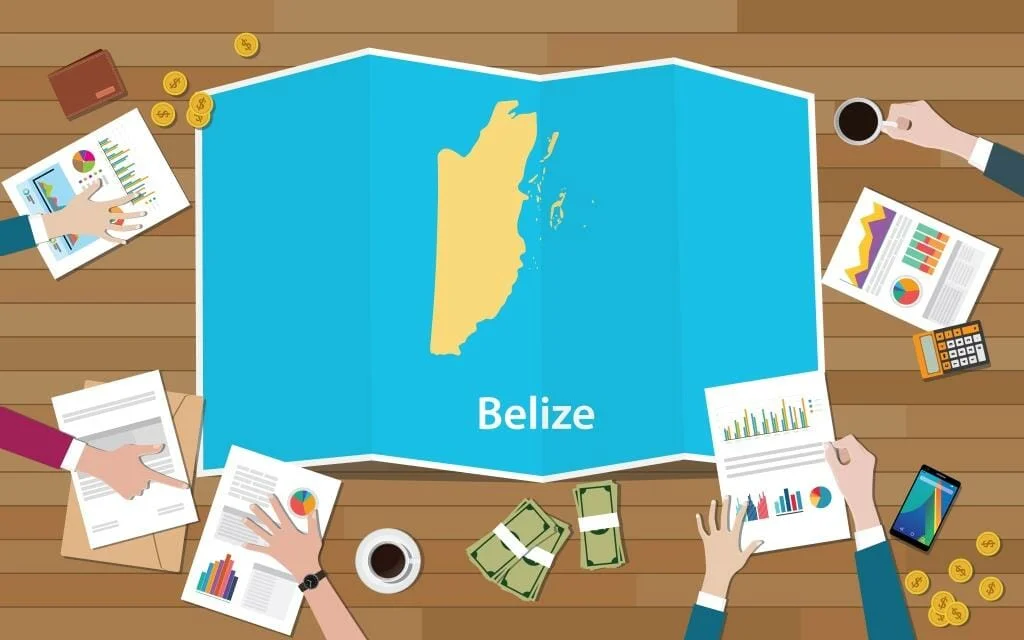Step-by-Step Overview to Successful Offshore Company Development
The development of an overseas business is a nuanced process that calls for cautious consideration of different variables to ensure success. Understanding the benefits of offshore enrollment, picking an appropriate jurisdiction, and diligently preparing the needed paperwork are important steps in this trip. Each stage of the process plays a crucial duty in establishing a strong foundation for your service. Many neglect the significance of ongoing conformity and reporting, which can significantly influence long-lasting feasibility. To realize the complexities included, it is crucial to take a look at each action closely, as even minor oversights can cause significant effects.
Understand Offshore Business Conveniences
Recognizing the advantages of offshore firm development is crucial for business owners seeking to maximize their organization operations. Offshore entities can guard personal and service properties from prospective lawful claims, creditors, and political instability in the entrepreneur's home country.
In addition, overseas firms typically enjoy beneficial tax obligation regimes. Many jurisdictions provide reduced or no corporate tax rates, which can significantly improve earnings margins and reinvestment capabilities. By tactically managing tax obligations, company owner can direct resources into growth and development.

One more benefit is enhanced privacy and confidentiality. Offshore jurisdictions generally have stringent personal privacy regulations, which can shield delicate company info and personal data from public scrutiny. This facet is especially appealing for entrepreneurs who value discernment in their economic events.
Additionally, offshore business formation can help with international business procedures. It permits much easier access to global markets and enhances trustworthiness with global companions. By leveraging these benefits, business owners can tactically position their businesses for lasting success and affordable advantage in the worldwide marketplace.
Pick the Right Territory
When choosing the appropriate territory for overseas firm development, several critical variables need to be considered to ensure placement with your company objectives. The initial element to assess is the governing environment; territories with well-established legal frameworks provide higher safety and security and predictability for your business operations.
Different territories supply differing tax advantages, consisting of reduced or zero tax rates for overseas firms, which can significantly enhance success. Furthermore, consider the political stability and economic conditions of the jurisdiction.
One more critical factor is the ease of working, which consists of the performance of the enrollment procedure, recurring conformity requirements, and the availability of expert services such as legal and accountancy support. Assess the credibility of the jurisdiction, as some may be checked out a lot more positively than others, affecting your business's integrity with financiers and clients.
Lastly, consider the specific sector laws that may influence your company. By thoroughly assessing these factors, you can make an informed choice on the very best jurisdiction for your offshore firm formation.
Prepare Required Documentation
Preparing the called for documents is a critical step in the offshore company formation process. This stage includes event and arranging various legal files that will support the establishment of your overseas entity. The details requirements can vary based on the chosen territory, however there are usual files generally required throughout many areas.
Firstly, you will certainly need to supply proof of identity, such as valid tickets or government-issued recognition for all directors and investors. In addition, you may be needed to send proof of address, such as energy costs or bank declarations, which need to not be older than three months.
Additionally, a thorough business plan describing the goals, operational structure, and designated tasks of the overseas business might be called for to show legitimacy and purpose. Depending on the jurisdiction, you may also need to prepare a memorandum and short articles of association, which act as the fundamental papers of the firm.
Involving a certified offshore provider can considerably simplify this process by ensuring that all documentation is total and compliant with regional guidelines, reducing prospective hold-ups in your firm development.
Complete the Enrollment Process
To finish the enrollment procedure More hints for your overseas business, it is necessary to submit the prepared paperwork to the ideal governing authority in your chosen territory. This why not find out more action marks an important phase in establishing your organization and requires thorough attention to detail.
Begin by assembling all needed types, including the application for consolidation, memorandum and articles of organization, and any type of identification papers for the directors and investors - offshore company formation. Make sure that all files follow regional regulations and are properly submitted to stay clear of delays
Once your paperwork is assembled, send it along with the called for charges, which can differ by jurisdiction. Some authorities may allow on-line submissions, while others call for physical shipment. Be conscious of any type of added demands, such as registration or legalization of records, which may be essential depending upon local legislations.
Upon entry, the regulative authority will certainly examine your application. This process may take numerous days to weeks, depending upon the territory and the complexity of your application. When approved, you will obtain a certificate of consolidation, formally establishing your offshore firm and allowing you to wage essential operational actions.
Manage Compliance and Reporting
Browsing the complexities of compliance and coverage is essential for the long life and success of your overseas firm. Compliance entails sticking to the lawful demands of the territory in which your offshore entity is registered, while reporting pertains to the timely entry of required documentation to regulatory authorities.

Furthermore, maintaining clear documents is crucial. This consists of monetary statements, mins of conferences, and paperwork of considerable company activities. Normal audits can additionally be valuable in recognizing prospective compliance issues early on.
In addition, remaining informed concerning adjustments in regulations or regulatory practices is essential. Territories often update their conformity frameworks, and prompt adjustment is essential to staying clear of fines or legal difficulties.
Verdict
